Author: Ken Christopher | 11 min read | Feb 29, 2016
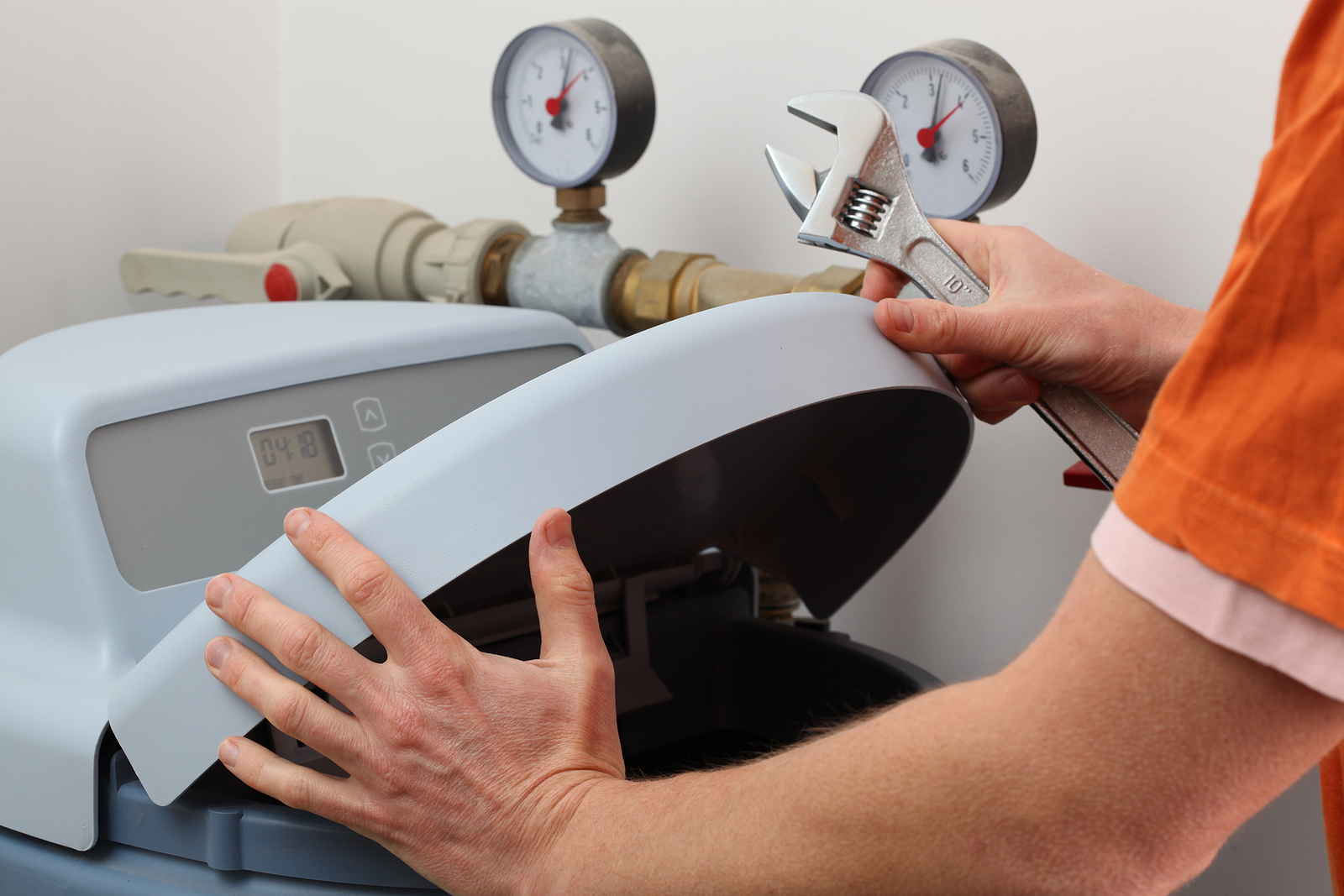
A soft water filtration system removes hard minerals like calcium and magnesium, helping protect your appliances and extend their lifespan. But not all systems are created equal.
Traditional salt-based softeners flush out high-chloride brine, which water recycling plants often cannot treat. This runoff can damage rivers and soil, leading regions like Santa Clarita Valley and parts of San Joaquin to ban them.
The good news is that compact, salt-free models are often allowed and provide a more eco-friendly solution. Before installing any system, check local regulations. In drought-prone areas like California, restrictions are becoming more common.
California has endured a prolonged drought, putting extreme pressure on water sources. Recycling wastewater has become a key strategy.
The EPA supports using reclaimed water for non-potable needs, like irrigation, industrial use, and groundwater recharge. As recycled water gains importance, municipalities are tightening standards on salinity and total dissolved solids (TDS) to protect treatment systems and ecosystems.
High salt loads from household systems can compromise this progress. Salt-based softeners discharge sodium and chloride during regeneration, risking failure to meet these stricter TDS requirements and endangering reuse feasibility.
Salt-based softeners use ion exchange: they replace hard minerals with sodium, then flush brine down the drain. This brine often carries over a pound of salt daily, even when regeneration is regular. Wastewater plants cannot easily remove dissolved salts, and higher salinity increases treatment costs while reducing the quality of reclaimed water.
The result: salt-based softeners unintentionally undermine drought resilience, water recycling, and environmental stewardship.
California passed Assembly Bill 1366 in 2005, empowering local agencies to prohibit salt-based softeners.
Cities such as Santa Clarita, Dixon, Santa Paula, Fillmore (and multiple Los Angeles County districts) have enacted bans or restrictions. These regulations often apply to new units, while some enforce removal of existing systems. Penalties can include fines or even jail time.
As drought pressures rise and communities aim to boost recycled water use, more bans are expected.
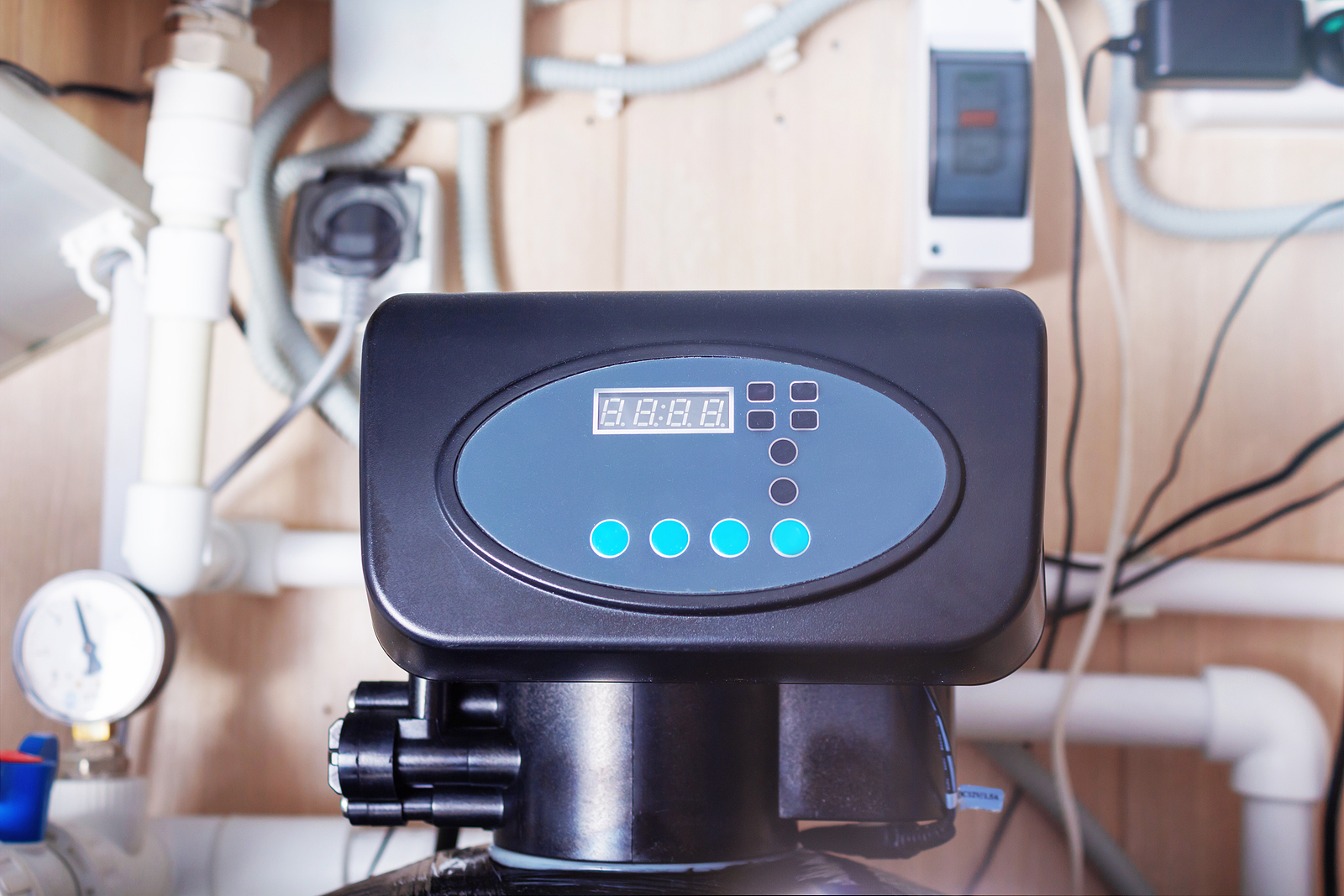
Exploring salt-free options, portable exchange services, and compact units for hard water relief, without the drawbacks of salt-based systems.
Salt-free systems (also called water conditioners) use processes like template‑assisted crystallization (TAC) to transform hardness minerals into harmless crystals. These particles stay suspended and don’t form scales.
PE tanks offer salt-free soft water by swapping full media tanks at your home. Water is conditioned off-site, so there is:
This solution is ideal for homes under local bans on salt-based systems or residents who want zero maintenance salt-free softening.
Compact water softeners provide full ion-exchange benefits in a smaller footprint.
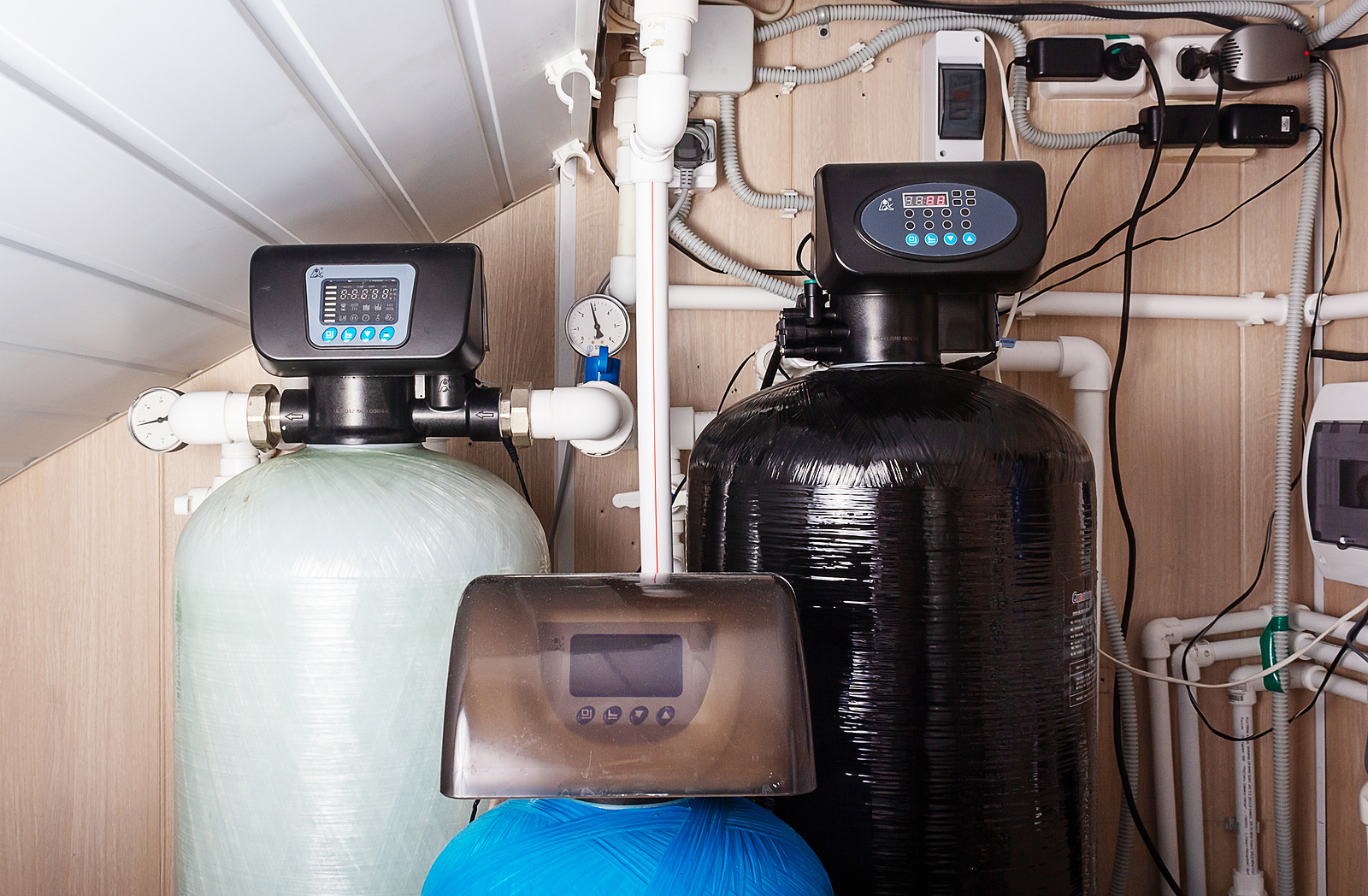
Each PE tank holds ion-exchange resin beads fully loaded with sodium. As untreated water flows through, hardness minerals are swapped out for sodium ions, resulting in softened water.
All regeneration, both media cleaning and resin recharge, happens offsite in specialized facilities
No electricity, no salt, no drains required in your home. The tank simply connects to existing plumbing for instant soft water.
Source: U.S. Energy
Exchange intervals depend on household size, daily water use, and water hardness. A small family might need tank swaps monthly, while larger households could require them weekly .
These services can be scaled: residential plans for six-person homes, or light commercial options for offices. Your technician will set up a schedule tailored to your needs, so you always have soft water, just when you need it.
This practical system blends convenience, compliance, and performance, making it an eco-aware substitute for traditional units.
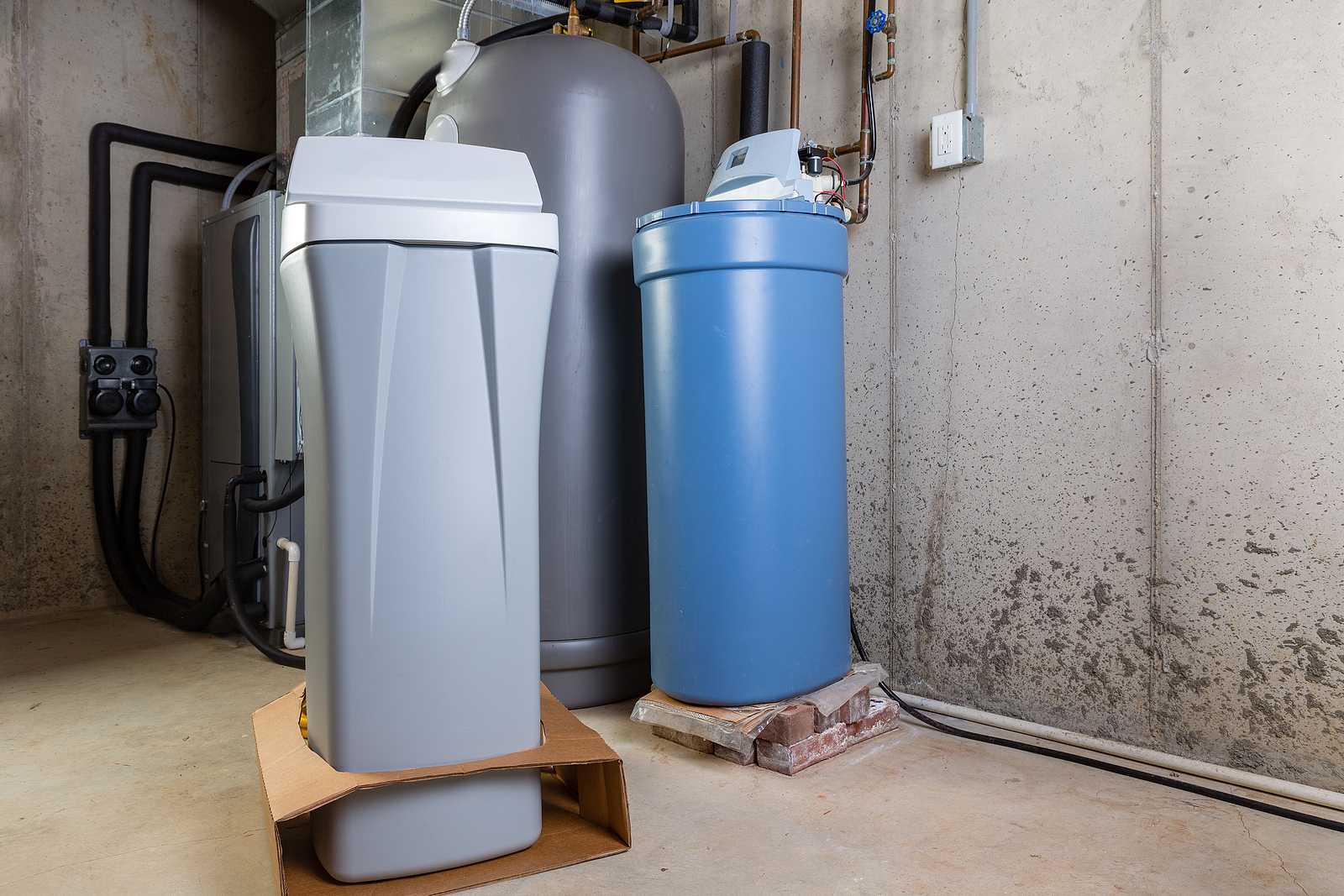
Hard water is tough on household appliances. Over time, minerals like calcium and magnesium can build up inside dishwashers, washing machines, and water heaters.
This buildup forms a hard scale that clogs internal parts and forces machines to work harder.
Efficiency drops, energy use goes up, and appliance lifespans are shortened.
A dishwasher with water softener features performs better and lasts longer because it stays cleaner inside. Softeners help reduce the need for repairs and keep utility bills lower. A soft water filtration system helps your appliances operate as intended, saving money and preventing breakdowns.
If you rely on several water-powered devices at home, soft water is a smart way to keep everything running smoothly.
Hard water impacts plumbing and appliances and also affects how you feel every day. Minerals in untreated water can strip moisture from skin, leaving it dry and irritated. Hair may feel heavy or dull. Clothes washed in hard water can lose softness and fade faster.
A soft water filtration system provides cleaner, gentler water that’s easier on your body and fabrics. A compact water softener or PE tank service can help households with limited space get the same benefits. These systems help your laundry stay soft and your showers feel better.
The difference shows up fast, in the texture of your skin, the look of your hair, and how your clothes feel.
Some signs of hard water are easy to spot. Cloudy glasses? White spots on dishes? A filmy layer on your shower door? These are all signs of mineral-rich water. You may also notice white crust on faucets or that your soap doesn’t lather well.
If this sounds familiar, your home might benefit from a soft water filtration system. Whether you install a whole-house system or a compact water softener, the right setup makes a difference.
Clean dishes, brighter laundry, and smoother showers start with soft water.
Identifying hard water early is the first step to finding a better, more efficient solution for your home.
Deciding between a PE tank service, a salt-free system, or a compact water softener depends on your home size, water hardness, and lifestyle. For households in salt-restricted areas or those wanting zero maintenance, PE services offer a convenient, compliant option.
Salt-free systems work best for mild to moderately hard water and are ideal for eco-conscious users. Compact systems shine in apartments or homes with limited space.
Before committing, ask providers about system capacity, local regulations, and maintenance requirements. Also consider whether you want installation included or prefer a DIY model.
Rayne Water offers tailored advice and installations across California, Arizona, and Nevada. Their technicians assess your needs and recommend the right fit, making the switch to softer water simple and stress-free.
Navigating a water softener ban does not mean giving up on soft water. Rayne Water offers custom solutions for homes in restricted zones, allowing homeowners to enjoy better water without breaking local rules. With decades of water treatment experience, Rayne understands the specific needs of households in dry, drought-prone areas.
Our full-service portable exchange (PE) tank program delivers softened water without any complicated setup.
There are no drains, no electricity, and no salt to worry about. For those who prefer a more permanent fixture, Rayne also provides salt-free systems that are compact, efficient, and eco-conscious.
If you are upgrading from a traditional system or installing soft water treatment for the first time, Rayne keeps things simple. We provide free consultations, water testing, and full support to ensure your setup matches both your home and local rules.
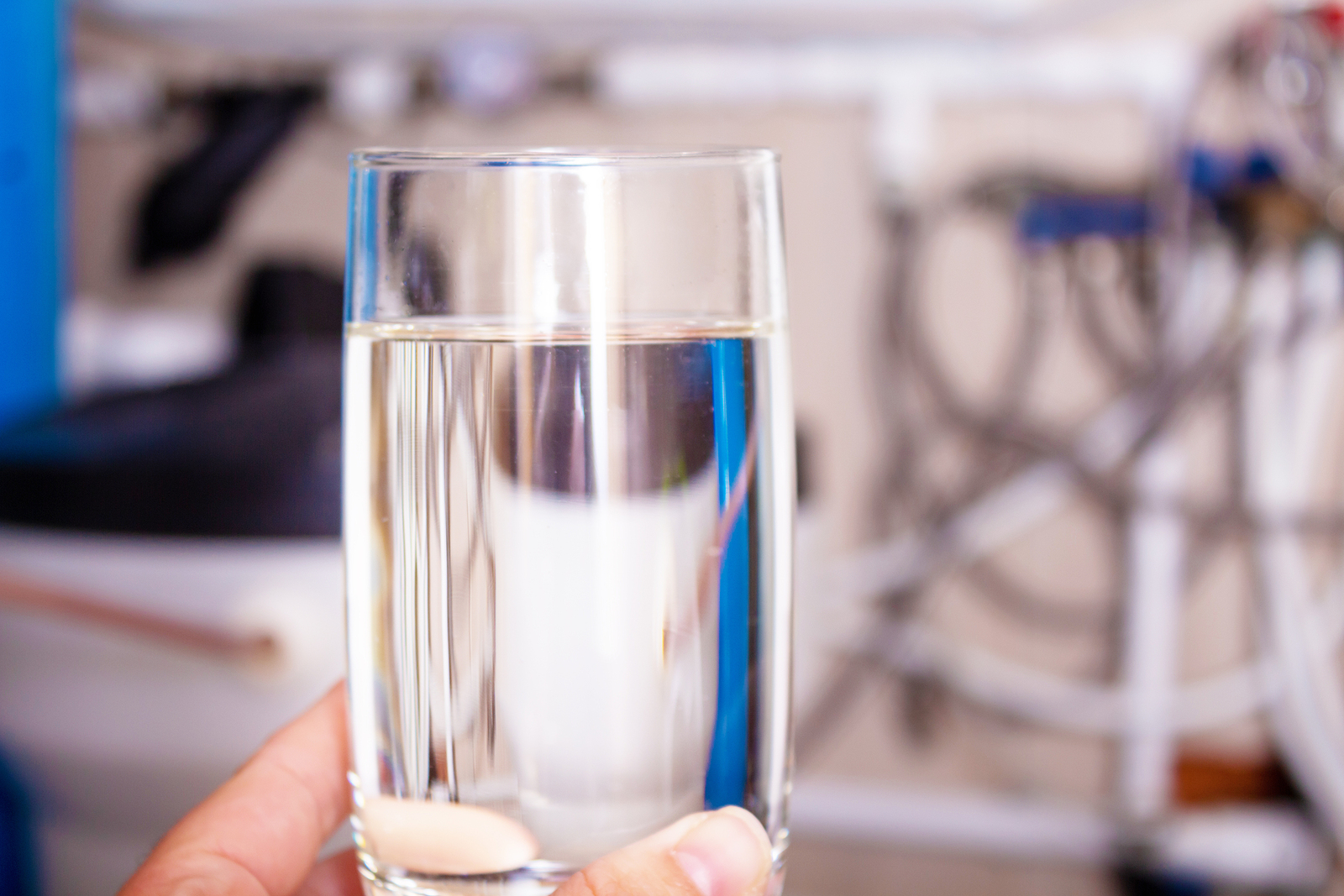
Water softener bans do not mean you have to settle for hard water. Today’s eco-friendly and ban-compliant solutions, like salt-free systems and PE tank services, help protect your home, appliances, and comfort. You do not have to compromise just to follow the rules.
Not sure what works for your area or needs? Rayne’s team offers expert guidance, free consultations, and ongoing support to make the switch simple. If you want softer water without the stress, let Rayne help you find a solution that fits your home and your local regulations. Reach out to us and start exploring your options.
What is a soft water filtration system, and how does it work?
A soft water filtration system removes hard minerals like calcium and magnesium from your water. It helps prevent scale buildup, making your water better for appliances, plumbing, and personal care.
Can I use a dishwasher with water softener in areas with softener bans?
Yes, many regions allow alternatives like PE tank services or compact water softener systems that are ban-compliant and can still benefit your dishwasher.
What are the main benefits of a compact water softener?
A compact water softener fits in small spaces, making it perfect for apartments or under-sink installations. It delivers soft water without taking up much room.
Are salt-free systems as effective as traditional softeners?
Salt-free systems work well for mild or moderately hard water and are eco-friendly. However, for very hard water, traditional or PE tank services may provide better results.
How do I choose the right soft water filtration system for my home?
Consider your water hardness, local regulations, and available space. Providers like Rayne Water offer free consultations to help you select a compliant and effective solution for your needs.